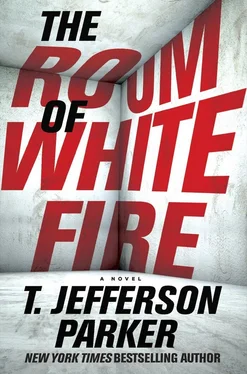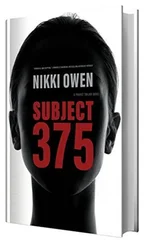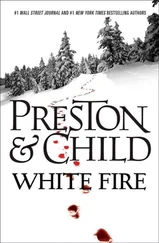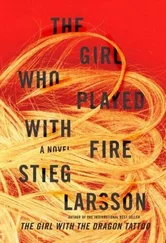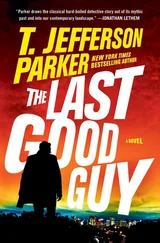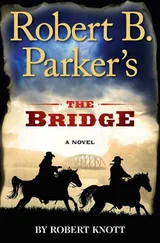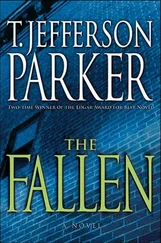Easing Hall Pass 2 down, I could see tawny hills and dark green valleys, vineyards large and small. Highway 101 to the west, Clear Lake bright as a mirror in the late afternoon sun.
The breeze was stiff and tricky on the approach. Hall Pass 2 skittered and shied like a spooked horse. I set her down with a rasp of tires, braked, and coasted under the shadeport as John had instructed. No Vazquez. I climbed down and called him. Left a message. I stood in the shade and smoked while Hall Pass 2 ’s Lycoming crackled and cooled. Afternoon leaned into evening.
Up a wide dirt road, atop a gentle hill, surrounded by row after row of grapevines, stood a boxy, standard-issue 1950s stucco house. A pickup truck and a minivan parked in front. A child’s bike resting against a porch beam. Two big oaks towered over the house for shade, a tire swing hanging from one of them.
The wind whipped a dust devil across the road and the bright green grape leaves fluttered and swayed. Zinfandel, Vasquez had told me — certified organic. Pride in his voice. Not far from the house stood a large yellow barn. Its breezeway door was open and the top half of the paddock door had come unlatched. Opening and slamming shut in the wind.
In Fallujah in 2004—in April, in fact, this same month — just after the Blackwater contractors were killed, dragged through the streets and hung off a bridge over the Euphrates, we Marines spent days trying to find those responsible. Tall order, considering we were the enemy and even the Shiites, who had suffered so long under Saddam, were beginning to hate us. At one point it was our job to go door-to-door, handing out leaflets, asking for Fallujahns to help us root out the guilty. It was a very strange time in the war, a turning point — they say now — during which “insurgents” from all around the Middle East began moving in to fight us. It was no longer the U.S. “liberating” Iraq from Saddam. It was the U.S. “occupying” a sovereign Muslim nation — which had become a deafening call for jihad.
This was when we realized we were targets, not liberators. Going door-to-door with those pamphlets had suddenly struck me as both optimistic and groundless, an example of the very American idea that anything can be fixed by throwing enough hope and force at it. Late on that first day of pamphleteering in Fallujah we pounded on an already beaten wooden door in a poor section of the city, and something in the silence that came from behind that door told us that we were about to be greeted by something terrible.
The family — mother, father, three young children — had been hacked to death. Recently. The bloodshed was indescribable and the pain in that house was like a living thing. Some strong men lost their stomachs there. I lost something else. Some portion of belief. Because I knew that this family had been murdered for helping us. Whether they actually had helped us, or not. The slaughter was their price for the Iraqi freedom we were dying to deliver.
One month later, in May, we turned over operations to the newly formed Fallujah Brigade. We armed them to the teeth, then withdrew. America had lost twenty-seven servicemen in that first battle of Fallujah, and the four Blackwater men. The news said we had killed two hundred insurgents and five hundred civilians. By September, the Fallujah Brigade had surrendered all the weapons we’d given them to the insurgency. Now Fallujah was back in the news. Under siege again. As if the Blackwater civilians and the Marines and the slaughtered family and everyone else who lost their lives in that ancient, cultured city in the war of 2004 had died for — what? Nothing?
Standing in the shadeport now, I had the same feeling I’d had outside that house in Fallujah. Maybe it was the slamming of the Dutch door. Or the wind in the grapes, or the way the tire swing turned on its rope. I’ve had that same eerie feeling several times since Fallujah and found nothing wrong at all. Other times, well... I waited a few minutes, ground out my smoke, and kicked some good rich Mendocino County grape-growing soil over it.
Then I opened up Hall Pass 2 , slipped my sidearm behind the waistband of my jeans at the small of my back. I own four handguns. This one was a Model 1911 .45 ACP with a standard single-stack magazine that holds eight rounds.
Up the dirt road to the barn. Wind strong, crows wheeling over the grapes. The Dutch door banged and the weather vane on the roof kept shifting directions. I caught the top door mid-slam and latched it open. The sun was behind me, lighting the interior: two full-sized tractors, one with a backhoe and the other with an auger for setting line stakes. A mud-spattered Bobcat sat beside them like a dirty infant. Tools, implements, more tools.
Inside smelled of gasoline and sulfur. I walked lightly, noting the pallets of supplies — bird netting, shade cloth, training stakes, end posts, crossarms, a drip irrigation line, connectors, and emitters. A workbench lined one wall, with a mounted table saw, a drill press, a grinder/polisher, and overhead fluorescent shop lights for the craftsman.
Nothing seemed unusual or out of place to me until I came to the shiny puddle on the cement floor. The puddle sat in a well-used parking place, judging by the old oil and power-steering and transmission-fluid stains around it. Decades of faint black tire tracks lined up perfectly with the sliding breezeway doors — easy in and easy out. I squatted and touched my fingers to the liquid, which was neither oily nor coolant-green. Condensation from the air-conditioner compressor, I thought. Like any vehicle would leave. Left recently, however. Recently enough that it hadn’t evaporated. I watched through the open Dutch door while I called John Vazquez again. No answer, didn’t leave a message.
Then to the house, past the oak trees and the truck tire turning slowly in the breeze. The pickup truck out front was older and had a ZIN LIVES! bumper sticker. The minivan was late-model and there was a child seat in the second row, behind the driver. The family must be home.
The house blinds were drawn. No one answered my knock so I used the doorbell and waited. The knob turned freely and I pushed open the door. “John! John Vazquez!”
Silence.
No sound from the back of the house, no lights. Sunset was half an hour away but the western hills blocked most of the sunlight. The entry and living room stood half in darkness.
I stepped in and called his name again. I saw the baby grand piano covered with framed pictures, and the wood-burning stove and sofas and the big TV. A ceiling fan whirred and the control chains swayed and twitched. I saw a door, ajar, and what looked like a half bath. On the far side of the living room was a small breakfast counter and three bar stools, and beyond that the kitchen and a dining room. On the dining room floor was a dark colored carpet and on the carpet, lying still, was a man. I dropped to one knee, gun raised in both hands, viewing the world beyond a sight notch and a vertical post. A gun in your hand changes who you are. Heart thumping fast, I was thoughtless but sensory. Movement beyond the man: a white cat outside, looking at me through a sliding glass door. Movement above the cat: the breeze in a pine tree. Oddities of the door glass: two round shatters around two small holes.
I scrambled across the floor. The man was faceup — arms out and legs spread as if he’d landed mid-stride. A revolver lay a few inches away from his open right hand. His eyes were open to the ceiling. I pressed two fingers to his neck — no reaction, no pulse. Through the glass the cat looked at me, tail twitching. I reached over with my .45 and nudged the revolver away. He was trim-faced, dark haired, thirty-something. Dead eyes. I saw the family in Fallujah. And blood on the hardwood kitchen floor. I sat there on my haunches for a minute, low and partially covered by the wall of the breakfast bar, listening and thinking. Outside, the wind hissed in the oaks. The cat paced, head low, looking in. The glass surrounding the bullet holes looked like frost.
Читать дальше
